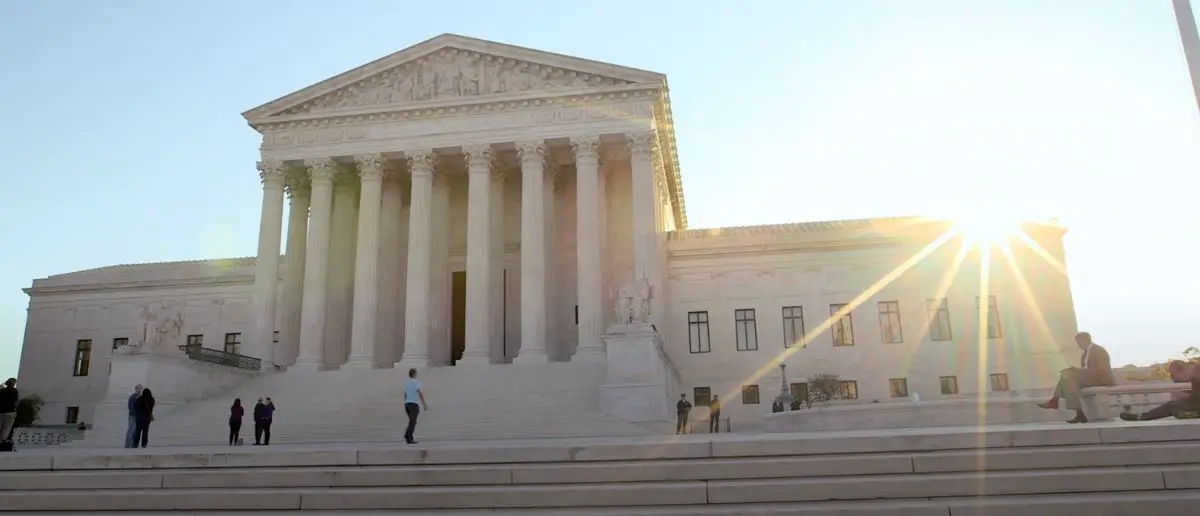
The judicial branch is at a crossroads. The future of America’s justice system is at stake.
That’s why a U.S. Supreme Court Justice landed in hot water with these outrageous rogue decisions.
Justice Ketanji Brown Jackson’s Legal Approach Sparks Concern
Justice Ketanji Brown Jackson’s recent solo dissents have drawn attention for their sharp criticism of the Supreme Court’s majority, raising questions about her judicial approach and alignment with colleagues. Her opinions often stand apart, even from other liberal justices, suggesting a divergence that critics argue may weaken her influence on the bench.
In a notable dissent against President Donald Trump’s push to reduce the federal workforce, Jackson failed to persuade even Justice Sonia Sotomayor, who noted the issue was not yet ripe for the court’s review. Jackson’s dissent warned of potential damage to democratic principles, describing the majority’s ruling as misguided and overly confident. This marked a departure from her peers, who declined to join her critique.
Legal scholars have pointed to a shift in Jackson’s tone since Trump’s return to prominence. During a Heritage Foundation panel, South Texas College of Law Houston professor Josh Blackman suggested Jackson’s rhetoric risks isolating her from other liberal justices. Her increasingly pointed language appears to contrast with her earlier tenure on the court.
In another case addressing deportation rulings, Jackson joined Sotomayor in dissent, but Justice Elena Kagan sided with the majority. Kagan emphasized that lower courts must adhere to the Supreme Court’s prior decisions, implicitly rejecting Jackson’s position. This division among the liberal justices reveals a fracture in their usual alignment.
Jackson’s dissent in a case limiting nationwide injunctions by lower courts spanned 21 pages, where she labeled the majority’s decision a severe threat to judicial integrity. Her stance drew a sharp rebuke from Justice Amy Coney Barrett, who authored the majority opinion. Barrett, joined by other conservative justices, criticized Jackson’s argument as inconsistent with longstanding precedent and constitutional principles.
🚨NEW: @seanspicer UNLOADS on Ketanji Brown Jackson🚨
"She is making nutty statements."
"She's not making legal arguments — and that's the problem I have."
"She is using politically charged language and saying, 'This is wrong. It's an outrage.'"
"What did she say yesterday… pic.twitter.com/rTIGxN3oIy
— Jason Cohen 🇺🇸 (@JasonJournoDC) July 9, 2025
Barrett’s opinion directly challenged Jackson’s perspective, noting that it seemed to advocate for an overly powerful judiciary while critiquing executive authority. This exchange shows a growing tension between Jackson’s approach and the court’s conservative majority, with her views often standing in stark contrast.
According to SCOTUSblog, Jackson was in the majority only 72% of the time during the 2024-2025 term, the lowest among her colleagues. In contrast, Kagan aligned with the majority 83% of the time, surpassing even some conservative justices. This disparity suggests Jackson’s positions are less likely to garner broad support.
The prior term showed similar patterns, with Jackson again at 72% in the majority, while Sotomayor and Kagan were slightly lower at 71%, per data from Adam Feldman and Jake Truscott. These figures indicate Jackson’s consistent divergence from the court’s consensus, even among those ideologically closer to her.
At the Global Black Economic Forum’s ESSENCE Festival, Jackson spoke to ABC News, emphasizing her role as an opportunity to express her views. Her focus on personal expression over legal reasoning raised eyebrows among critics who argue justices should prioritize constitutional fidelity over subjective opinions.
Carrie Severino, president of JCN, took to social media to criticize Jackson’s remarks, stating that her job is to uphold the law, not to voice personal sentiments. This sentiment was echoed by George Washington University professor Jonathan Turley, who warned that Jackson’s approach risks turning judicial opinions into editorial commentary.
Turley further cautioned that such a trajectory could erode the court’s authority, likening her opinions to cable news segments rather than reasoned legal analysis. This critique suggests Jackson’s style may undermine the judiciary’s role as an impartial arbiter.
In the 2024-2025 term, Jackson wrote only five majority opinions but authored over 20 concurring and dissenting opinions, according to The New York Times. Her prolific dissenting voice contrasts with her limited success in shaping majority rulings, further highlighting her outlier status.
In a dissent against a decision allowing oil companies to challenge California’s electric vehicle rules, Jackson expressed concern that the ruling favored corporate interests at the expense of the court’s reputation. Sotomayor agreed with her vote but did not join the opinion, while Kagan aligned with the conservatives.
Despite these divisions, Jackson found consensus in a unanimous decision she authored, ruling that majority group members need not meet a higher standard to prove discrimination. This rare agreement demonstrates her ability to occasionally bridge divides, though it remains an exception.
An analysis by professors Lee Epstein, Andrew D. Martin, and Michael J. Nelson found Jackson writes concurring opinions at a higher rate than any justice since 1937. This tendency to stake out her own positions, even when unnecessary, suggests a preference for individual expression over coalition-building.
Jackson’s public appearances, including remarks in Indianapolis to promote her memoir, Lovely One, have amplified concerns about her judicial philosophy. She described democracy’s state as a personal worry, emphasizing her willingness to speak out, even when duplicating other justices’ efforts. Her comments indicate a prioritization of her voice over collegial restraint.
During oral arguments, Jackson spoke more than any other justice, logging 76,116 words in the 2024-2025 term, per Empirical Scotus. Her verbosity, compared to Sotomayor’s 50,028 words, has sparked debate about whether she dominates discussions at the expense of her colleagues. Jackson herself acknowledged the challenge of balancing her contributions with others’ opportunities to speak, yet her approach remains a point of contention.





